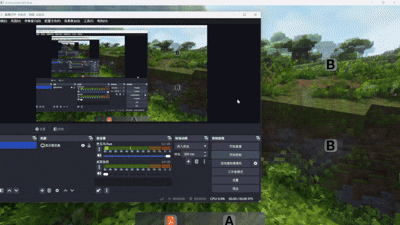如何使用QWidgets设计一个类似于Web Toast的控件?
前言
笔者这段时间沉迷于给我的下位机I.MX6ULL做桌面,这里抽空更新一下QT的东西。这篇文章是跟随CCMoveWidget一样的文章,尝试分享自己如何书写这份代码的思考的过程,和笔者自己反思的不足之处。
核心组件是继承自 QWidget 的 DesktopToast 类,其通过 QLabel 作为消息展示载体,并结合 QPropertyAnimation 完成提示动画效果。该设计首先考虑了窗口的非侵入性,使用 Qt 的无边框、Tool 类型窗口标志,并启用透明背景和非激活显示属性,从而实现一个不打断用户操作、不占用任务栏的浮动消息框
接口设计
相对于上一篇文章的StackWidget_SwitchAnimations而言,这个会好一些,这里笔者设计的接口是这样的:
#ifndef DESKTOPTOAST_H
#define DESKTOPTOAST_H
#include <QPointer>
#include <QWidget>
#include <QQueue>
class QLabel;
class QPropertyAnimation;
class DesktopToast : public QWidget
{
Q_OBJECT
public:
explicit DesktopToast(QWidget *parent = nullptr);
/* enqueue the message */
void set_message(const QString& message);
signals:
void do_show_toast(QString msg);
private:
void adjust_place();
void start_animation();
void start_close_animation();
/* fetch from pool and display */
void set_message_impl(const QString& message);
QLabel* label;
QPoint startPos, endPos;
int animation_maintain_msec{500};
int wait_time{1000};
QPointer<QPropertyAnimation> moveAnimation{nullptr};
QPointer<QPropertyAnimation> fadeAnimation{nullptr};
bool isHandling{false};
/*
* when large amount of messages smash in,
* pools do the job of Buffering the message
* warning: Queue itself is not thread safe, add
* lock if in multithread
*/
QQueue<QString> pools;
};
#endif // DESKTOPTOAST_H
这里区分几个点:第一个事情是label,这个是信息显示的一个载体,startPos, endPos是用来标记控制我们的Toast的位置的。animation_maintain_msec控制动画的时常,wait_time是稳定的事件消息显示。moveAnimation这个是笔者用来控制出现的动画,fadeAnimation是消失的动画。
#include <QLabel>
#include <QGuiApplication>
#include <QPropertyAnimation>
#include <QScreen>
#include <QTimer>
#include "desktoptoast.h"
// Constructor: configure the window flags and label style
DesktopToast::DesktopToast(QWidget *parent)
: QWidget{parent}
{
// Make the window frameless, floating and always on top
setWindowFlags(Qt::FramelessWindowHint | Qt::Tool | Qt::WindowStaysOnTopHint);
// Enable translucent background for rounded corners and alpha gradient
setAttribute(Qt::WA_TranslucentBackground);
// Do not grab focus or activate the window
setAttribute(Qt::WA_ShowWithoutActivating);
// Create the label to display the toast message
label = new QLabel(this);
// Use gradient background and rounded corners for better UI appearance
setStyleSheet(
"QLabel {"
"background: qlineargradient(spread:pad, "
"x1:0, y1:0, x2:1, y2:1, "
"stop:0 rgba(250, 250, 250, 100), "
"stop:1 rgba(230, 230, 230, 100));"
"border-radius: 10px;"
"}"
);
// Connect the internal signal to the implementation slot
connect(this, &DesktopToast::do_show_toast,
this, &DesktopToast::set_message_impl);
}
// Play the entry animation to slide the toast into view
void DesktopToast::start_animation()
{
show(); // ensure the widget is visible
if (moveAnimation) {
moveAnimation->stop(); // stop any ongoing animation
moveAnimation->deleteLater(); // clean up old animation
}
// Animate the widget's position from startPos to endPos
moveAnimation = new QPropertyAnimation(this, "pos");
moveAnimation->setDuration(animation_maintain_msec);
moveAnimation->setStartValue(startPos);
moveAnimation->setEndValue(endPos);
moveAnimation->setEasingCurve(QEasingCurve::OutCubic); // smooth-out easing
moveAnimation->start(QAbstractAnimation::DeleteWhenStopped);
}
// Play the exit animation to slide the toast out and prepare for next message
void DesktopToast::start_close_animation()
{
show(); // required to animate out properly
if (fadeAnimation) {
fadeAnimation->stop();
fadeAnimation->deleteLater();
}
// Reuse the position animation for simplicity, sliding back to startPos
fadeAnimation = new QPropertyAnimation(this, "pos");
fadeAnimation->setDuration(animation_maintain_msec);
fadeAnimation->setStartValue(endPos);
fadeAnimation->setEndValue(startPos);
// When animation finishes, hide the widget and check the message queue
connect(fadeAnimation, &QPropertyAnimation::finished, this, [this]() {
isHandling = false;
hide();
// If there are still messages in the queue, show the next one
if (!pools.isEmpty()) {
isHandling = true;
QString msg = pools.dequeue();
emit do_show_toast(msg);
}
});
fadeAnimation->start(QAbstractAnimation::DeleteWhenStopped);
}
// Calculate and apply the toast position based on parent or screen geometry
void DesktopToast::adjust_place()
{
QWidget* referenceWidget = parentWidget();
if (referenceWidget) {
// Position relative to parent if available
QRect parentRect = referenceWidget->rect();
QPoint topCenter(parentRect.width() / 2 - width() / 2, 30);
endPos = referenceWidget->mapToGlobal(topCenter);
} else {
// Otherwise, position at top center of primary screen
#if QT_VERSION >= QT_VERSION_CHECK(5, 10, 0)
QRect screenGeometry = QGuiApplication::primaryScreen()->availableGeometry();
#else
QRect screenGeometry = QApplication::desktop()->availableGeometry();
#endif
int screenWidth = screenGeometry.width();
int screenX = screenGeometry.x();
QPoint topCenter(screenX + (screenWidth - width()) / 2, screenGeometry.top() + 30);
endPos = topCenter;
}
// Slide animation will start from above the final position
startPos = QPoint(endPos.x(), endPos.y() - 70);
move(startPos);
}
// Enqueue a message to be displayed; if idle, trigger it immediately
void DesktopToast::set_message(const QString& message)
{
pools.enqueue(message);
if (!isHandling) {
isHandling = true;
QString msg = pools.dequeue();
emit do_show_toast(msg);
}
}
// Display the message and start both animations and close timer
void DesktopToast::set_message_impl(const QString& message)
{
label->setText(message);
label->adjustSize();
resize(label->size()); // fit to label size
adjust_place(); // determine where to show the toast
show();
raise(); // bring on top of sibling widgets
start_animation(); // enter animation
// Start close animation after wait time + animation duration
QTimer::singleShot(wait_time + animation_maintain_msec, this, &DesktopToast::start_close_animation);
}
这里的QString 队列 pools 实现了简单但实用的消息缓冲机制,使该提示框具备顺序展示大量消息的能力,并在注释中清楚地提醒了其非线程安全性。
为了避免动画冲突,我是用 QPointer 包装动画对象,在启动前清理旧动画,确保每一次动画都是全新的过程,并用 isHandling 标志位控制消息的串行处理。位置信息由 adjust_place 函数动态调整,无论是否有父窗口,这样总是居中定位在屏幕上方;而实际的展示逻辑通过 set_message_impl 驱动,该函数不仅设置 QLabel 文本并自适应尺寸,还协调动画播放和自动关闭,呈现出一种自然的消息过渡过程。整个机制通过信号 do_show_toast 解耦用户接口与实际执行逻辑,使 set_message 可以无阻塞地写入消息,而真正的展示交给内部状态控制来完成。
演示一下:


























 被折叠的 条评论
为什么被折叠?
被折叠的 条评论
为什么被折叠?








